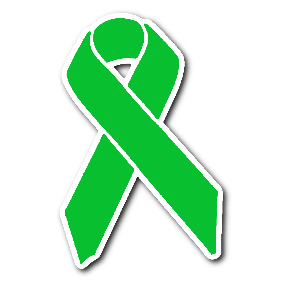Use this section to connect with mental health and substance use resources:
- Get Help
- Learn More
The resources below can help you better understand mental health and substance use issues.
This is a parent-to-parent guide and contains helpful ideas to help parents deal with difficult time in their family’s life. Available in English and Spanish.
This organization, which was created in 1998 by the creators of a short film called Trevor, focuses on suicide prevention for LGBTQ (lesbian, gay, bisexual, transgender, queer, and questioning) youth, who are especially at risk for suicide. It provides confidential phone and online crisis intervention services for young people in these communities as well as resources for parents and others in the community.
SAMHSA’s National Helpline is a free, confidential, 24/7, 365-day-a-year treatment referral and information service (in English and Spanish) for individuals and families facing mental and/or substance use disorders. Call +1 (800) 662-HELP (4357).
NAMI is the nation’s largest grassroots mental health organization dedicated to building better lives for the millions of Americans affected by mental illness. Call +1 (800) 950-NAMI. Email info@nami.org or text NAMI to 741741 (M-F, 10AM – 6PM).
MHA is the nation’s leading community-based nonprofit with local affiliates in communities around the country dedicated to addressing the needs of those living with mental illness and to promoting the overall mental health of all Americans.
The SPRC is one of the most comprehensive resources for suicide prevention. In addition to information and training, they offer a hotline to help anyone who’s thinking of ending their life. The website has links to resources in different states and a video providing advice on how to help talk people out of committing suicide. Call +1 (800) 273-Talk (8255).
This national family-run organization links more than 120 chapters and state organizations focused on the issues of children and youth with emotional, behavioral, or mental health needs and their families. It works to develop and implement policies, legislation, funding mechanisms, and service systems that utilize the strengths of families. Its emphasis on advocacy offers families a voice in the formation of national policy, services and supports for children with mental health needs and their families.
CWLA leads and engages its network of public and private agencies and partners to advance policies, best practices and collaborative strategies that result in better outcomes for children, youth and families that are vulnerable.
QPR helps save lives and reduce suicidal behaviors by providing innovative, practical and proven suicide prevention training. We believe that quality education empowers all people, regardless of their background, to make a positive difference in the life of someone they know.
FAVOR is the nation’s leading grassroots recovery advocacy organization. Promoting the rights and resources to recovery through advocacy, education, and demonstrating the power and proof of long-term recovery.
Anxiety. Depression. Substance use. Mental health is an important component of total health. Elevance Health offers mental health and substance use benefits as part of medical plans. Get help for eating disorders, depression, anxiety, and drug and alcohol dependence. Find a Provider.
The resources below can help you better understand mental health and substance use issues.
This website has information on a wide variety of mental health issues, including suicide. The suicide prevention page has advice for both people contemplating suicide and those who want to help a suicidal person. The site also provides a list exposing common myths about suicide, such as the idea that people who talk about it won’t really do it.
This website has lots of information about mental illness and suicide prevention, including statistics, symptoms, treatment options, and risk factors. This site is useful for understanding the connection between suicide and other mental health issues such as depression, bipolar disorder, and others.
Teen suicide is a growing problem in America and many other countries. SPTS is a non-profit organization created by parents whose teen-aged children committed suicide. It’s dedicated to helping to reduce the problem of teen suicide by providing resources for teens, as well as, parents and educators. SPTS pushes for legislation requiring teachers to undergo training in suicide prevention.
This is a public and private alliance of organizations dedicated to preventing suicide. The Action Alliance works with many groups, including government agencies, religious groups, schools, and mental health organizations to help people understand and prevent suicide. The Action Alliance, along with the Surgeon General, released a report called National Strategy for Suicide Prevention, which is one of the most comprehensive guides on this topic.
The AFSP website has a long list of resources, including crisis hotlines, advice for finding mental health care, substance abuse treatment, and resources for issues such as cutting, borderline personality, schizophrenia and other issues that often overlap with suicide. The AFSP also provides help to people who have lost loved ones to suicide.
The American Psychological Association (APA) is the leading scientific and professional organization representing psychology in the United States. They provide resources featuring information related to psychological issues affecting daily physical and emotional well-being.
The CDC is a government agency mainly known for addressing health issues. However, it also has information about preventing violence and suicide. The website has links for preventing suicide in specific populations such as gay men, Native Americans, traumatized children, and others.
RAINN is the nation’s largest anti-sexual violence organization. It created and operates the National Sexual Assault Hotline in partnership with more than 1,000 local sexual assault service providers across the country and operates the DoD Safe Helpline for the Department of Defense. RAINN also carries out programs to prevent sexual violence, help survivors, and ensure that perpetrators are brought to justice.
A consortium of researchers and school districts across Missouri, Virginia, and Montana are working to enhance the capacity of rural schools to identify, prevent, and intervene in youth mental health concerns. This Center is funded by the U.S. Department of Education, Institute of Education Sciences. Contact: Wendy Reinke @ reinkew@missouri.edu 573-882-7890
